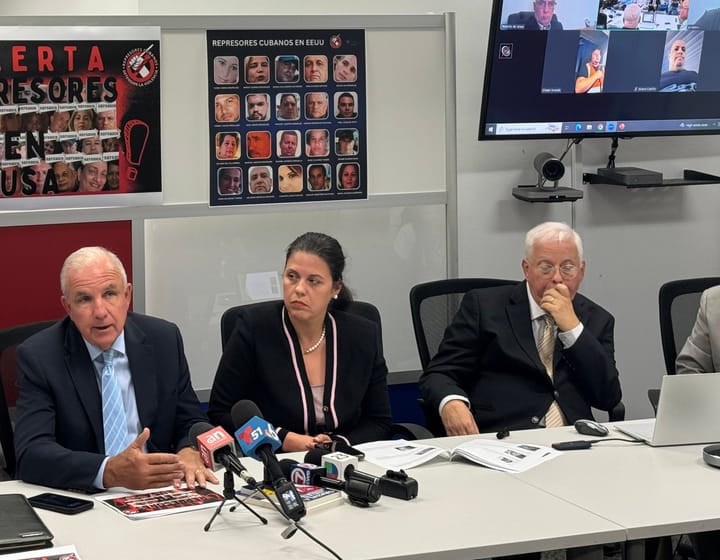Alejandro Gil proposes reviving the Cuban economy with "more state intervention"
He indicated the need for the State to regain control of the currency, in response to the flow of dollars outside the control of state banks.

The Deputy Prime Minister and Minister of Economy and Planning, Alejandro Gil Fernández, outlined the new economic measures of the Cuban government, aimed at “correcting distortions and reinvigorating the economy.” These reforms, presented by Prime Minister Manuel Marrero, include increased prices for essential services, in response to citizens’ concerns about their current economic situation.
Gil Fernández quoted President Miguel Díaz-Canel, who described Cuba as being in a “war economy scenario,” without specifying how this affects the general population and not the investments in the tourism and hotel sector. “The pressures against our economy and people are strong,” said Gil Fernández, highlighting the need to reform the rationing booklet and to adjust the subsidies and prices of food, whose import costs have increased significantly since 2019.
Among the topics addressed, Gil Fernández mentioned fuel and electricity rates, which will increase by up to 25% for large consumers, with the goal of incentivizing energy savings. However, no details were provided about the rise in the price of liquefied gas, which will also affect the population.
The Deputy Prime Minister assured that the measures do not represent a crusade against MIPYMES (Micro, Small and Medium Enterprises), but seek to introduce corrections to improve their operation and that of the economy in general. According to Gil Fernández, these reforms are the result of a broad process of consultation and analysis, focused on increasing the role of the State as an economic regulator and in strengthening the socialist state enterprise, denying any tendency towards neoliberal adjustment.
The reforms also aim to accelerate economic recovery, achieve a fairer distribution of wealth, encourage production and work, and protect the most vulnerable layers of the population. In addition, Gil Fernández indicated the need for the State to regain control of currency management, in response to the flow of dollars outside the control of state banks, mainly coming from remittances and non-state businesses.
In relation to MIPYMES, the Minister of Finance and Prices, Vladimir Regueiro Ale, announced the suspension of tax benefits for these companies as of January 2024, which will mean they will start paying taxes on sales, services, and profits. This, according to Regueiro Ale, will favor the increase in budgetary revenues. The government will also increase the tariff on MIPYMES imports and will establish caps on the prices of certain products they sell, such as chicken.
Gil Fernández concluded by stating that the implementation of the measures will begin on the first of January, with additional details to be provided gradually.




Comments ()